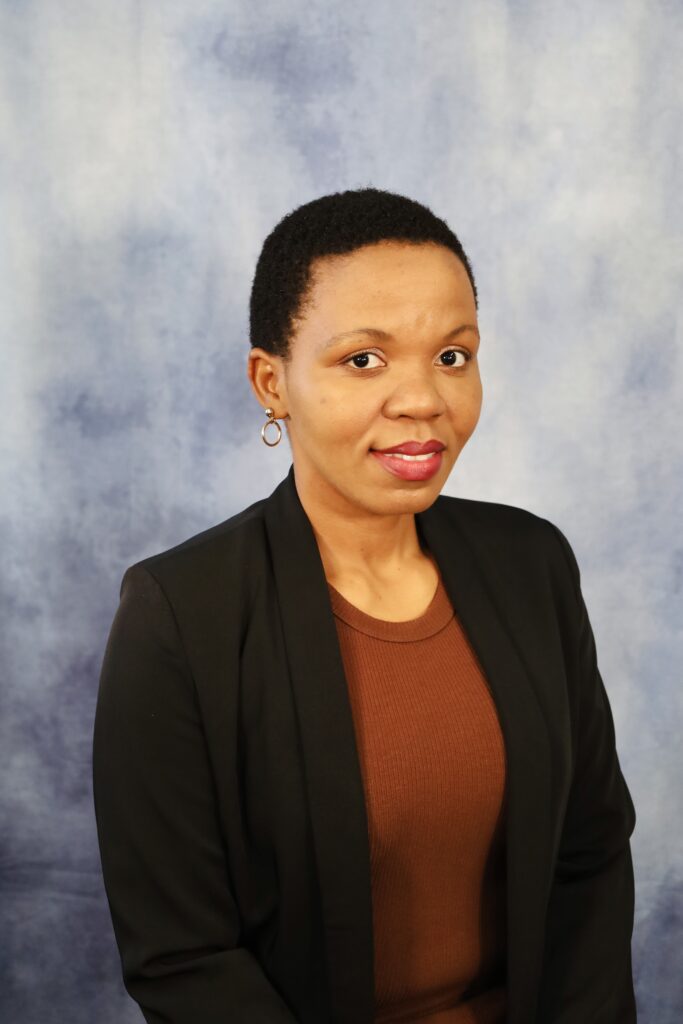Meet Ms. Notsile Dlamini
Written by Dr. Gloria Regisford (SSR Diversity Committee) in honor of the Black History Month
February is a Black History Month. The SSR Diversity Committee is participating in this celebration. For this, Dr. Gloria Regisford (member of the SSR Diversity Committee) interviewed Ms. Notsile Dlamini, Graduate Research Assistant in the Department of Animal and Dairy Sciences at Mississippi State University under the supervision of Dr. Jean Feugang.
1. What is your current position, and what does it entail?
I am a PhD student in Agricultural Sciences with a concentration in Animal Science and a Graduate Research Assistant in the Department of Animal and Dairy Sciences at Mississippi State University. In this position, I mainly conduct research which focuses on boar seminal plasma extracellular vesicles as nanocarriers of potential biomarkers of semen quality. This involves applying molecular biology techniques such as RNA sequencing, protein analysis, metabolomics, and statistical modeling to identify key biomolecules influencing semen quality. In addition to research, I assist in teaching Anatomy and Physiology labs, and mentor undergraduate students in research.
2. Can you talk a little bit about yourself? Where are you from? What first attracted you to the world of science? And how did you get to be in your current position?
I am from the Kingdom of Eswatini, a small but beautiful country in Southern Africa. My passion for science started at a young age when I became fascinated with agriculture and animal biology, inspired by my experiences growing up in a country where livestock plays a crucial role in livelihoods as a source of food and income. I then pursued a Bachelor of Science in Animal Science at the University of Eswatini, where I graduated top of my class. This achievement, along with my growing interest in research, motivated me to apply for the Fulbright Foreign Student Scholarship in 2020, which allowed me to complete my MSc in Agriculture (Animal Science) in the U.S. My master’s research focused on microRNAs in boar seminal plasma extracellular vesicles, which became the foundation for my PhD. Now, as a PhD student, I am expanding on this work, aiming to contribute to animal reproductive biotechnology.
3. What are you most excited to do this year?
This year, I am particularly excited about completing my PhD preliminary exams which will mark a significant milestone in my academic journey. I will also be attending and presenting my research in various scientific conferences, where I will engage with experts in the reproductive biology field and receive valuable feedback. I am also looking forward to advancing my research and publishing my findings.
4. Are there ways in which you think your heritage has affected your perspective or career trajectory?
Absolutely. Growing up in Eswatini, a third world country where agriculture is fundamental to food security and economic stability, has given me a deep appreciation for animal science. My heritage has influenced my research interests, particularly in livestock reproduction and fertility, which are critical for sustainable animal production in developing countries. Moreover, coming from a country with limited research opportunities has motivated me to work harder, embrace challenges, and seek out opportunities that contribute to scientific knowledge. It has also given me a global perspective on research and highlighted the importance of collaboration to achieving scientific breakthroughs that can benefit livestock production systems.
5. What words of inspiration would you like to share with the future generation of scientists, especially those coming from diverse backgrounds?
My words of inspiration to future scientists are to work hard, believe in yourself and not to let your background be a limitation. It is also vital to take advantage of every opportunity to learn and grow. Research requires an open-mind and the willingness to take risks. They should also seek mentors and build supportive connections that will guide them in their academic journey. They should stay persistent as challenges will arise, but perseverance will set them apart. Most importantly, celebrate the small victories along the way and strive to inspire and uplift others.


